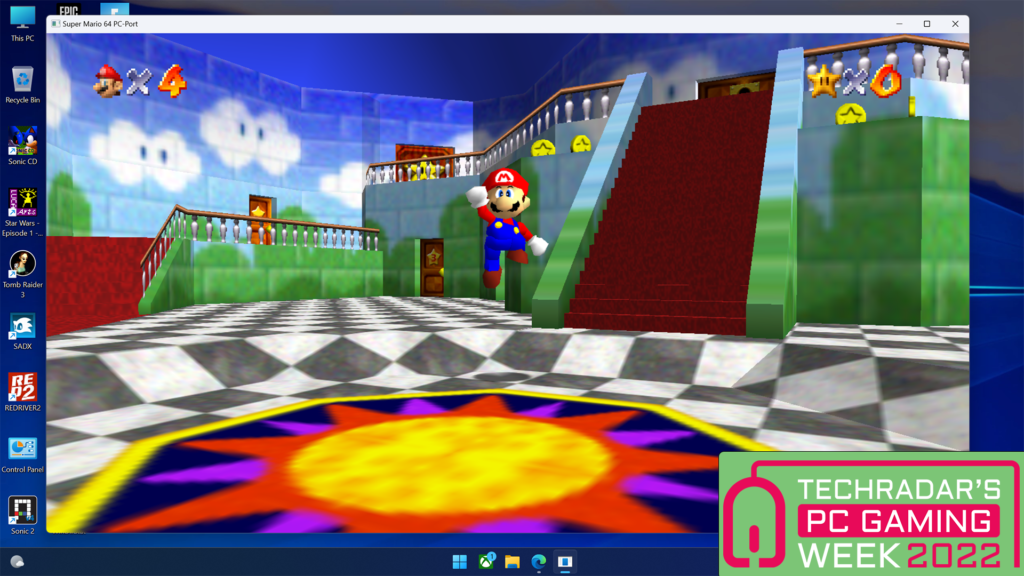Have you ever wondered what goes on behind the scenes of your favorite video games? The world of decompile games offers a fascinating glimpse into the intricate mechanics and design choices that developers use. From retro classics to modern masterpieces, decompiling can breathe new life into beloved titles. Whether you’re a curious gamer or an aspiring developer, exploring this realm uncovers hidden gems and unique experiences. Join us as we dive deep into the art of decompilation and discover what makes these games so captivating.
What is a decompile game?
A decompile game refers to a title whose source code has been extracted and transformed back into a more understandable format. This process allows programmers to analyze, modify, or even recreate original game elements.
Decompiling is often used for various purposes. Some developers want to learn from others’ work, while hobbyists might seek to restore old games that have become unplayable or forgotten over time.
Players may also enjoy modified versions of these games created by fans who add features, fix bugs, or tweak gameplay mechanics.
However, it’s essential to understand that not all decompiled games are made with permission from their original creators. This raises questions about ownership and creativity in the gaming industry as enthusiasts explore this intriguing practice.
The History of Decompiling in the Gaming Industry
The roots of decompiling in the gaming industry trace back to the late 1980s and early 1990s. As games evolved, so did the technology used to create them. Enthusiasts began dissecting game code out of curiosity and a desire for deeper understanding.
With the advent of home consoles like the NES and Sega Genesis, players wanted more than just gameplay. They sought modifications, hacks, and even fan translations. This sparked an underground movement where dedicated hobbyists shared their findings.
By the early 2000s, tools became more accessible. Communities formed around decompiling projects, leading to significant breakthroughs in reverse engineering popular titles. These efforts not only revived old classics but also introduced users to new experiences through mods.
However, as interest grew, so did scrutiny from developers concerned about intellectual property rights. The balance between innovation and legality became increasingly complex within this vibrant subculture.
Popular Decompiled Games
Among the most popular decompile games, Super Mario 64 stands out. Players have reimagined this classic with custom levels and unique mechanics. Fans enjoy sharing their creations online.
Another favorite is “The Legend of Zelda: Ocarina of Time.” Enthusiasts have dissected its code to create mods that enhance graphics or introduce new storylines. These changes breathe fresh life into a beloved title.
“Doom” is also frequently decompiled, giving rise to countless fan-made projects. Its simple yet flexible design allows programmers to experiment with gameplay elements like never before.
Moreover, “Pokémon FireRed” has attracted attention for its extensive modding community. Gamers love tweaking character stats and evolving game dynamics through decompilation techniques.
These examples illustrate how players engage deeply with their favorite titles, transforming old experiences into something entirely new while keeping the spirit alive.
Legal and Ethical Implications of Decompiling
Decompiling games raises several legal and ethical questions. At its core, decompiling involves reversing the compiled code back into a human-readable format. This process can infringe on copyright laws if unauthorized.
Many game developers invest years in crafting their products. When someone decompiles without permission, it might be seen as stealing intellectual property. The repercussions can lead to lawsuits or other legal actions.
Ethically, the situation is just as complex. While some argue that decompiling fosters innovation and learning, others believe it disrespects the creators’ rights. Players who enjoy modified versions often forget that these changes can undermine original intentions.
Finding a balance between curiosity and legality is crucial for gamers interested in this area. Understanding both sides helps navigate potential pitfalls in this fascinating yet controversial field of gaming culture.
The Pros and Cons of Playing Decompile Games
Playing decompile games offers a unique experience. Fans enjoy revisiting classics with new twists. These titles often come laden with nostalgia, allowing gamers to relive their childhood favorites.
However, the thrill can be short-lived. Many decompiled versions lack polish and may introduce bugs or glitches that disrupt gameplay. This unpredictability can frustrate even seasoned players.
Another aspect to consider is creativity. Decompiler communities frequently innovate by adding features or improving graphics that enhance the original game’s appeal. Yet, this innovation sometimes strays too far from what made the initial version beloved.
Legal concerns are paramount as well. Engaging in playing such games might lead to unintended copyright infringements, which could have consequences for players and developers alike.
While exploring decompile games can be rewarding, it’s essential to weigh these factors carefully before diving in.
Tips for Finding and Playing Decompiled Games
Finding decompile games can be an adventure in itself. Start by exploring dedicated forums and communities focused on retro gaming or modding. These spaces often share insights and resources about specific titles.
Check out websites that host fan-made projects. Many developers upload their work for others to experience, allowing you to discover hidden gems that aren’t widely known.
When playing these games, ensure your system meets compatibility requirements. Emulators might need configuration tweaks for optimal performance.
Always use reputable sources to download files. This minimizes the risk of malware and ensures a safe gaming experience.
Experiment with various settings within the game or emulator to enhance graphics or gameplay mechanics. Sometimes small tweaks can dramatically improve your enjoyment.
Don’t hesitate to reach out for help in online communities if you encounter issues. The community is often eager to assist fellow gamers on their journey through decompiled worlds.
Conclusion
Decompile games have carved out a unique niche in the gaming community. They offer players an intriguing glimpse into the mechanics behind their favorite titles. This exploration can lead to new experiences and insights, but it’s essential to navigate this world thoughtfully.
While decompiling can be seen as a means of preservation or creativity, legal and ethical considerations cannot be overlooked. Understanding these implications is crucial for anyone interested in engaging with decompiled games.
The balance between enjoying altered versions of beloved classics and respecting original creators is delicate. As players delve deeper into this fascinating realm, they should consider both sides of the coin—embracing innovation while honoring intellectual property rights.
For those eager to dive into decompiling games, taking informed steps will enhance your experience. By knowing where to look and understanding how to play responsibly, you can enjoy what these unique creations bring without stepping on any toes.
The journey through the world of decompile games is rich with potential for discovery and enjoyment. Whether you’re playing for nostalgia or curiosity, there’s much to explore within this captivating landscape.



